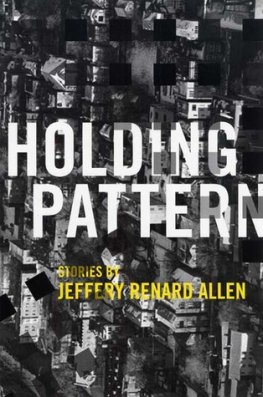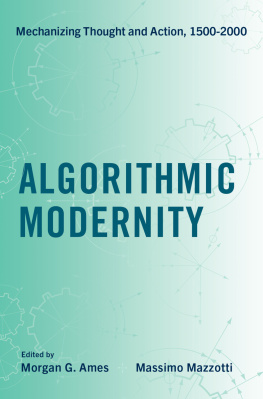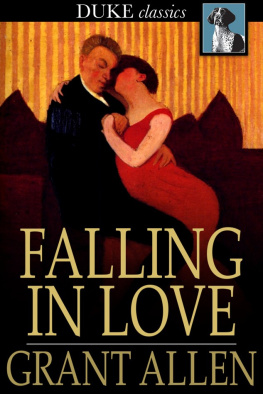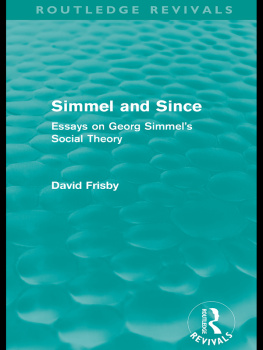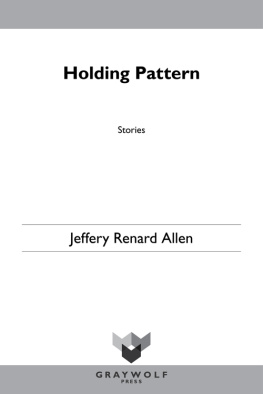T. K. Van Allen - On the Edge
Here you can read online T. K. Van Allen - On the Edge full text of the book (entire story) in english for free. Download pdf and epub, get meaning, cover and reviews about this ebook. year: 2017, genre: Romance novel. Description of the work, (preface) as well as reviews are available. Best literature library LitArk.com created for fans of good reading and offers a wide selection of genres:
Romance novel
Science fiction
Adventure
Detective
Science
History
Home and family
Prose
Art
Politics
Computer
Non-fiction
Religion
Business
Children
Humor
Choose a favorite category and find really read worthwhile books. Enjoy immersion in the world of imagination, feel the emotions of the characters or learn something new for yourself, make an fascinating discovery.

- Book:On the Edge
- Author:
- Genre:
- Year:2017
- Rating:3 / 5
- Favourites:Add to favourites
- Your mark:
- 60
- 1
- 2
- 3
- 4
- 5
On the Edge: summary, description and annotation
We offer to read an annotation, description, summary or preface (depends on what the author of the book "On the Edge" wrote himself). If you haven't found the necessary information about the book — write in the comments, we will try to find it.
On the Edge — read online for free the complete book (whole text) full work
Below is the text of the book, divided by pages. System saving the place of the last page read, allows you to conveniently read the book "On the Edge" online for free, without having to search again every time where you left off. Put a bookmark, and you can go to the page where you finished reading at any time.
Font size:
Interval:
Bookmark:
On the Edge
Essays and Stories from Outside the Overton Window
T K Van Allen
10/31/2017
T K Van Allen 2017
All rights reserved.
All images in this work are either in the public domain or the work of the author. Image credits are listed at the end of the book.
Table of Contents
This book is a collection of writing (mostly essays) on biology, culture, society, and philosophy. It deals with some of the biggest questions and issues of modern times, and it presents ideas that many would consider to be controversial or even heretical.
We live in a time when the solutions to the problems of the past cannot solve the problems of the present or the future. We desperately need new ideas. Most of all, we need honesty in confronting reality.
Most of the content of this book comes from a blog that I wrote in the years 2013-2017. If it still exists, it is located here. The blog was a companion to my YouTube channel, called Blithering Genius, and some of the blog posts were text versions of YouTube videos.
The chapters in this book are loosely ordered (by content not date of creation) but you dont have to read them in sequence. There is some redundancy between them, because they were created over four years for a changing audience, and so I couldnt assume that my reader/listener was aware of everything else I had created. Also, there are recurring themes: issues that I raise over and over because they are important and relevant.
This book covers a broad range of topics, but most of them relate, in one way or another, to problems of modern civilization. Modern civilization has solved many problems of the past, such as hunger and disease, but it has also created new problems. These new problems are often hidden from the awareness of ordinary people. We have no cultural understanding of them, and our brains are not adapted to solving them. To understand and solve these problems, we must go outside the boundaries of ordinary thought and discourse. We must expand rationality.
This book is about expanding rationality so we can deal with the problems of the modern world, before it is too late. We must develop the conceptual framework necessary for framing and solving the problems of modernity. This book is a small contribution toward that effort.
If you put a caterpillar on the rim of a bowl, it will walk around and around in a circle. The rim of the bowl stimulates its nervous system in the same way that a branch does, so it responds as if it were on a branch, by walking along it until it reaches a leaf to feed on, or another branch. Placed on the sidewalk, the caterpillar will wander aimlessly. Its instincts only generate adaptive behavior when it is in its natural environment.
This experiment demonstrates that:
- Caterpillars are not very smart.
- Instincts have to match the environment or they dont work.
- A behavior that solves small problems might not solve bigger problems. In other words, scale matters.
The caterpillar is very good at walking along the rim of the bowl, but it cant solve the bigger problem of getting somewhere.
Humans can find themselves in similar predicaments. Take a heroin addict, for example. Each day he is focused on getting his next fix. Once he gets it, he relaxes and enjoys the pleasure of the drug, but once it wears off he has to get the next fix or go through terrible withdrawal symptoms. Perhaps he lacks awareness that the pleasure of the fix causes the pain of withdrawal, and that he is getting nowhere in life. Or perhaps he lacks the will to choose his destiny at a scale beyond a single day. Either way, his life consists of going in circles and getting nowhere. Each day, he focuses on solving the small problem of getting his next fix, without solving the bigger problem of where he is going in life.
Is the ordinary person much different? For the most part, people go through their lives solving small problems without developing awareness or exercising will on a larger scale. The ordinary person thinks more about what toothpaste to buy than he does about the purpose of life.
The conditions of modernity have, inadvertently, placed man outside his natural environment. Heroin addicts have the excuse that their instincts evolved in a world without heroin, just as the caterpillars instincts evolved in a world without circular branches. Instincts can lead to perverse consequences in a world that they are not adapted to.
That is why philosophy matters. Philosophy is the attempt to expand awareness and will beyond the small problems of ordinary life. In other words, it is an attempt to expand consciousness to deal with problems that exist on a larger scale than ordinary life. Philosophy is the attempt to develop a higher-level framework that might present us with problems that we did not know that we had, and hopefully with the means of solving them as well.
Lets say 10 people (5 breeding couples) arrived in North America about 15,000 years ago. How long would it take to fill up the Americas with people?
Well, of course that would depend on their birth rates and death rates. For the sake of simplicity, lets assume their population doubled every 30 years. That is about the current rate of growth of the African population. It seems reasonable that a small population of hunter-gatherers in a virgin continent could grow at that rate. The large animals had no experience of human beings and no reason to be particularly afraid of them, so hunting would have been easy.
If their population doubled every 30 years, then it would multiply by roughly 1000 every 300 years (210 = 1024). Lets consider their progress in 300-year increments, assuming that they multiply by 1000 in each increment.
In the first 300 years, their population would have grown from 10 to 10,000. Thats a pretty small population and it would have made little impact on the environment, aside from an increase in fires in the areas where they lived. They would have spread a long way from their entry point, moving south for the climate if nothing else. They would also have split into about 100 small bands, scattered around the central and western parts of North America. Neighboring bands would probably be mostly friendly with each another. They all spoke the same language, had the same legends, and could move to avoid conflict if necessary.
By year 600 of our experiment, the population would be 10,000,000. They would have spread throughout the entire continent of North America and probably into South America as well. By this time, most of the large animals would already have been hunted to extinction or reduced to small remnant populations in refugia such as mountains, islands and dense forests. All the good hunting grounds would already be occupied, but there would still be plenty of subprime real estate available, such as forested or mountainous regions. War would be on the increase, because moving away from your neighbors had become more difficult. Life in general would be getting harder.
By this time the environment would have been dramatically altered, mostly by fire. Humans like to burn things, and they usually burn away forests and dense undergrowth, creating a more savannah like environment. Our ancestors evolved in an open woodland habitat, and we prefer that kind of environment (which is why almost every city park is an open woodland, not a dense forest or treeless expanse). Hunter-gatherers have always burned the landscape to open it up and create forage for the animals they like to hunt. Its even possible that this massive burning could have affected the Earths climate to some degree. Regular burning reduces the amount of carbon stored in the biosphere and increases the amount stored in the atmosphere. The spread of Homo sapiens into the Americas and into northern Eurasia at the end of the last Ice Age may have caused more rapid warming than would have otherwise occurred.
Next pageFont size:
Interval:
Bookmark:
Similar books «On the Edge»
Look at similar books to On the Edge. We have selected literature similar in name and meaning in the hope of providing readers with more options to find new, interesting, not yet read works.
Discussion, reviews of the book On the Edge and just readers' own opinions. Leave your comments, write what you think about the work, its meaning or the main characters. Specify what exactly you liked and what you didn't like, and why you think so.

